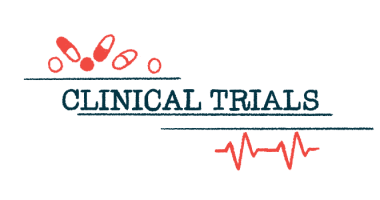4DMT, FDA agree to lift clinical hold on Fabry gene therapy 4D-310
Hold was based on safety data from company's INGLAXA Phase 1/2 trials

4D Molecular Therapeutics (4DMT) has reached an agreement with the U.S. Food and Drug Administration (FDA) to lift the hold on a U.S.-based clinical trial testing 4D-310, an investigational gene therapy for Fabry disease.
The hold was based on safety data from the company’s INGLAXA Phase 1/2 trials. One is taking place in the U.S. (NCT04519749) and another in Taiwan and Australia (NCT05629559).
Among the six patients dosed in both trials, three developed atypical hemolytic uremic syndrome (aHUS), a rare disorder marked by the destruction of red blood cells that carry oxygen in the bloodstream.
To address this, 4DMT launched a single safety study involving nonhuman primates to evaluate 4D-310 combined with an immunosuppressive regimen using rituximab and sirolimus (R/S) to lower the risk of aHUS and toxicity-related side effects. The company plans to submit the results to the FDA by mid-2024.
The INGLAXA trial protocol has also been modified to minimize aHUS risk, including by implementing the R/S immunosuppressive regimen.
“We are delighted to have reached an agreement with the FDA on our proposed plan to address the clinical hold and continue trial development,” David Kirn, MD, co-founder and CEO of 4DMT, said in a company press release.
What led to the clinical hold on 4D-310 trial?
Mutations in the GLA gene cause Fabry disease, a condition wherein fatty molecules build up to toxic levels inside cells.
Administered directly into the bloodstream, or intravenously, 4D-310 uses a harmless engineered viral vector to deliver a healthy copy of the gene to heart muscle cells to help break down these molecules.
The ongoing Phase 1/2 trials are designed to study the safety and effectiveness of 4D-310 in 18 adults with Fabry disease. The participants receive a single intravenous administration and are then followed for up to a year. The participants also received immunosuppressive prednisone to ease immune-related side effects.
Data from the first three participants in the U.S. clinical trial showed improvement in several measures of heart function a year after treatment, with signs that the GLA gene copy had been delivered and was functioning as expected in about half of the heart muscle cells.
Three patients had aHUS within a week of receiving the gene therapy, with one deemed severe, however. While all recovered within two to four weeks, the company decided to pause enrollment in both INGLAXA trials.
Soon after, the FDA notified 4DMT of a clinical hold in the U.S., which was “consistent with the company’s plans.” A clinical hold was not placed on the Asia-Pacific program by regional regulators.
The company is conducting the single study in monkeys to demonstrate that switching the immunosuppressive regimen from prednisone to R/S is safe and has a good distribution in the body.
4DMT is continuing to examine efficacy data from the INGLAXA clinical trial program. Interim data, including results from heart biopsies, after 1-1.5 years of follow-up for all six patients, are expected in the first quarter of 2024.
“We have shared with the FDA the totality of the most up to date clinical activity and safety data already generated from INGLAXA trials, as of August 2023, and look forward to progressing this critical work on behalf of all patients with Fabry disease,” Kirn said.







